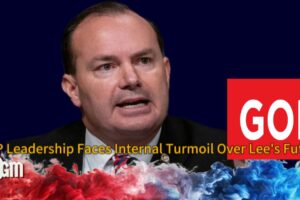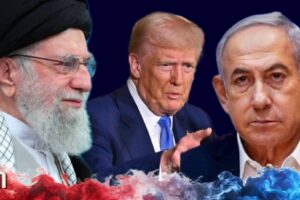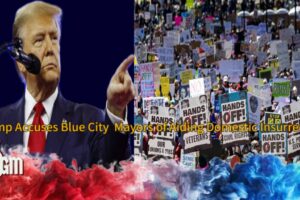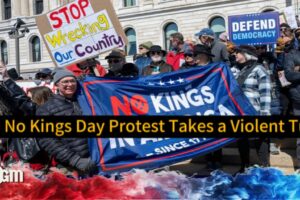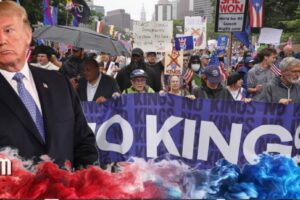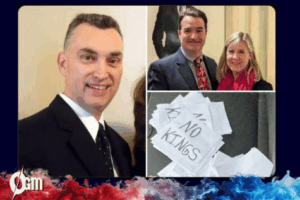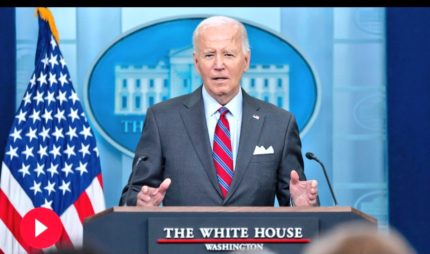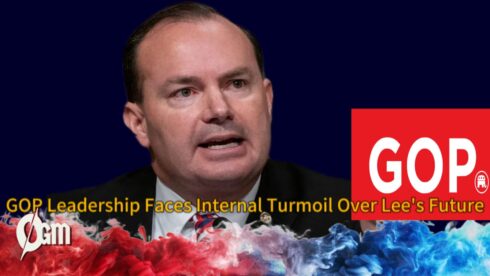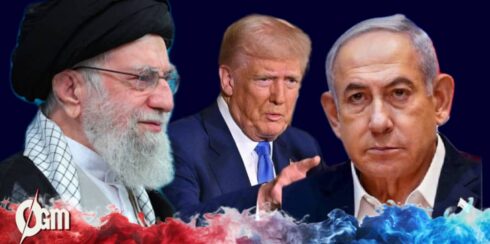In his final hours as President of the United States, Joe Biden issued a series of preemptive pardons that have since sparked significant controversy. These pardons, directed at several key individuals, including Dr. Anthony Fauci, retired General Mark Milley, and members of the House Select Committee investigating the January 6 Capitol attack, are seen as efforts to protect these figures from potential retribution by the incoming administration. President-elect Donald Trump and his supporters had previously indicated that they would target political opponents once in power. Biden’s swift actions, while protecting certain public figures, are also being closely examined in light of accusations of political overreach.
The most prominent of the pardoned individuals were Dr. Fauci, General Milley, and high-profile members of the House Select Committee, such as Liz Cheney and Adam Kinzinger. These figures had all been at the center of polarizing debates, and Biden’s decision was perceived as a protective measure to shield them from a politically charged environment under the incoming Trump administration.
Dr. Anthony Fauci’s Pardon: Defending Public Health Leadership
Dr. Anthony Fauci, a key figure in the U.S. response to the COVID-19 pandemic, found himself at the center of numerous controversies during and after his tenure as Director of the National Institute of Allergy and Infectious Diseases. Fauci faced intense criticism, especially from right-wing factions, who accused him of mishandling the pandemic and misguiding the public. Despite these issues, President Biden’s decision to pardon Fauci was seen as an effort to protect him from potential legal or political retribution, particularly as the incoming Trump administration had made threats to target those it deemed responsible for the pandemic’s management.
However, Joe Biden’s pardon also came with a crucial clarification: it should not be seen as an admission of wrongdoing on Fauci’s part. The move was interpreted as a defense of Fauci’s legacy as a public servant rather than an endorsement of every aspect of his pandemic management. Biden’s action, therefore, reflected a broader defense of scientists and health experts who had been criticized during the national health crisis.
General Mark Milley: A Shield from Political Persecution
General Mark Milley, who served as the Chairman of the Joint Chiefs of Staff under President Biden, became a target of harsh criticism from then-President Donald Trump, especially after the events surrounding the January 6 Capitol attack. Milley’s decision to speak out against the violent insurrection and his actions to safeguard the integrity of the U.S. military led to strong public rebukes from Trump and his allies. These tensions had raised concerns that Milley could face politically motivated prosecutions under a future Trump-led administration.
In issuing a pardon for Milley, President Joe Biden sought to protect the General from any such retribution. This preemptive move was interpreted as an effort to preserve the military’s integrity and prevent the politicization of the armed forces. Supporters of Milley praised Joe Biden’s decision as an acknowledgment of the General’s commitment to safeguarding the country’s democratic values, while critics argued that it was a strategic political move to solidify Biden’s influence over military leaders.
Members of the January 6 Committee: Safeguarding Political Integrity
Joe Biden’s pardon also extended to members of the House Select Committee that had investigated the January 6 Capitol attack, including prominent figures like Liz Cheney and Adam Kinzinger. These individuals had faced severe backlash from Trump supporters, with some even receiving threats against their safety. The committee’s work, which aimed to uncover the truth behind the attack and its orchestrators, was seen as a direct challenge to Trump’s narrative, making its members vulnerable to retaliation from the incoming administration.
By granting pardons to these committee members, Joe Biden sought to shield them from potential legal and political threats. The pardon was not only a symbolic defense of these individuals but also an assertion of the importance of upholding the rule of law and preserving democratic processes in the face of attempts to undermine them. This decision further highlighted the partisan divide in U.S. politics and Biden’s commitment to protecting the integrity of the institutions involved in the investigation.
Joe Biden’s Broader Clemency Actions: A Push for Justice and Fairness
In addition to the high-profile pardons, President Joe Biden made a bold statement on criminal justice reform by commuting the sentences of nearly all federal death row inmates. While this move sparked debate, as some notorious criminals, such as Dzhokhar Tsarnaev, remained unaffected, it demonstrated Biden’s commitment to addressing injustices within the criminal justice system. Biden also pardoned 39 individuals convicted of nonviolent crimes and nearly 2,500 nonviolent drug offenders, marking a significant shift toward restorative justice.
Perhaps most symbolically, Joe Biden posthumously pardoned Marcus Garvey, the famed civil rights leader, as part of his broader efforts to rectify historical wrongs. These actions reflect a recognition of the disparities in the criminal justice system and a desire to foster a more equitable approach to justice. Despite criticisms of overstepping executive authority, Joe Biden’s clemency actions underscored his broader vision of fairness and justice, with a particular emphasis on reforming a system that has long been criticized for its treatment of marginalized communities.
Controversy and Criticism: Debates Over Executive Overreach
The pardons and clemency actions taken by President Biden in his final hours have sparked heated debates. Critics argue that Biden overstepped his executive authority, issuing pardons to individuals who had not been formally charged with crimes. These actions are seen by some as politically motivated, designed to protect key figures from potential legal challenges under the incoming Trump administration. Some critics also questioned the fairness of pardoning individuals without clear charges or convictions.
On the other hand, supporters of Biden’s decisions defend the pardons as a necessary protection for public servants and those who have worked to uphold the rule of law in a deeply polarized political environment. They argue that the pardons were not only acts of personal protection but also necessary for preserving the integrity of the democratic institutions involved. In the end, Biden’s actions will continue to be scrutinized, with some viewing them as a bold defense of public servants, while others see them as an overreach of presidential power.


